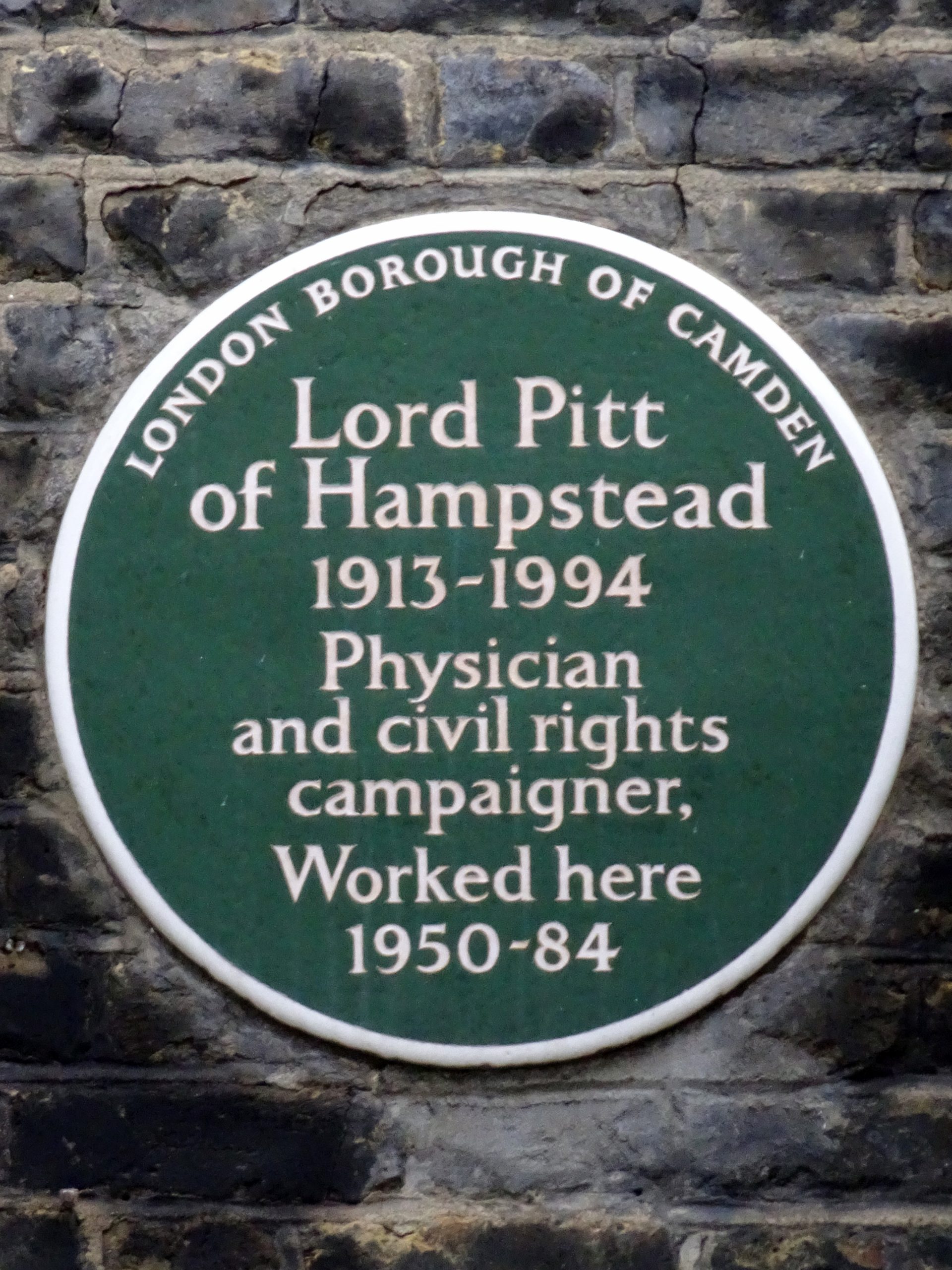David Thomas Pitt, Baron Pitt of Hampstead, was a British Labour Party politician and political activist. He was the longest-serving Black MP in the House of Commons.
 Spudgun67, CC BY-SA 4.0
Spudgun67, CC BY-SA 4.0 Pitt, who had been born in Hampstead, Grenada, earned the Island Scholarship in 1932, allowing him to pursue his study overseas. He went to the University of Edinburgh to study medicine and graduated with honours in 1938. Pitt was always captivated by societal issues such as poverty. The British Medical Journal indicates how “it was in the slums of Edinburgh as much as in the Caribbean that he became convinced of the links between poverty, disadvantage, and ill health“. In 1936, he became a member of the Labour Party but in 1941, he went back to the Caribbean to continue his medical profession, where he then established his own general practice. Pitt moved to London in 1947 after being involved in politics in the Caribbean. He opened a clinic in the Euston district of London, which endured more than 30 years and treated both white and black patients. Pitt was a leading figure in the anti-apartheid campaign in South Africa, organising protests from the basement of his London practice on North Gower Street. However, he was labelled a Black radical for recommending that more ethnic minorities apply to be police officers, which, paradoxically, enraged many in the black community who believed the police were racists by nature. Lord David Pitt is well-known for helping to pave the path for interracial politics. Lord David Pitt spent his life advocating for the underrepresented Black community in Great Britain and eventually passed away in 1994.
